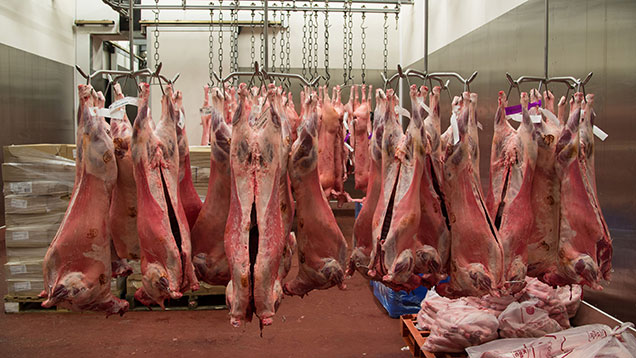BVA concern over lack of commitment to pre-slaughter stunning
 © Tim Scrivener
© Tim Scrivener British vets have called on the food industry to take humane slaughter seriously after a report found two-thirds of companies offer no information on their commitment to stunning.
In a statement, the British Veterinary Association (BVA) expressed concern at the results of the Business Benchmark on Farm Animal Welfare (BBFAW) report, which found just 32% of assessed companies had a specific policy on the practice of stunning prior to slaughter in 2015 – down from 34% in 2014.
As reported by Farmers Weekly last week, those behind the BBFAW study looked at how 90 of the world’s leading food companies, including 19 from the UK, manage and report their farm animal welfare policies and practices.
Companies were scored on whether they have an overarching corporate farm animal welfare policy in place and specific policies on issues such as close confinement, antibiotic use, pre-slaughter stunning and long-distance live transportation.
Nearly three-quarters (72%) of companies had specific policies on close confinement, up from 64% in 2014. While 39% had specific policies on prophylactic antibiotic use, up from 35% the previous year.
On the practice of stunning before slaughter, just 4% boasted a “universal commitment”, 18% a “partial commitment with clear scope” and 10% a “partial commitment but unclear scope”.
The remaining 68% offered no information on their commitment to stunning animals before slaughter.
“There are several positive findings on the growing commitment of food companies towards farm animal welfare in the BBFAW report, which we welcome. But the report highlights a disappointing lack of commitment towards animal welfare at the time of slaughter,” said BVA president Sean Wensley.
Citing a European Commission (EC) survey of 13,500 meat consumers across Europe, which found 72% wanted information on pre-slaughter stunning, Mr Wensley added: “Food companies need to sit up and take consumers’ concerns about humane slaughter seriously.
“People want to be assured that farmed animals receive both a good life and a humane death,” he said.
